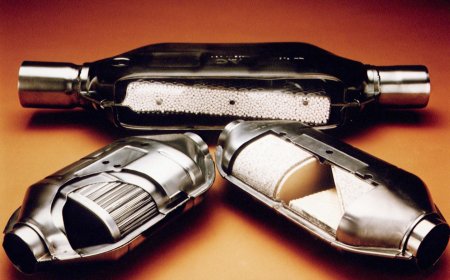Benefits and Uses of Charcoal Filter for Water and Air
Learn the benefits and uses of charcoal filters for purifying air and water. How they work, advantages and limitations and common questions and concerns.

Benefits and Uses of Charcoal Filter for Water and Air
Charcoal filters are becoming increasingly popular as a natural and effective way to purify air and water. They work by trapping impurities in a porous layer of activated charcoal, which is made from carbon-rich materials like coconut shells or wood.
In this article, we'll explore the benefits and uses of charcoal filters, including how they work, their advantages and limitations, and some common questions and concerns.
What is a Charcoal Filter?
A charcoal filter, also known as an activated carbon filter, is a type of filtration system that uses activated charcoal to remove impurities from air or water. The charcoal is treated with oxygen to open up millions of tiny pores between the carbon atoms, which creates a large surface area for adsorption. This means that the impurities in the air or water stick to the surface of the charcoal, leaving the purified air or water to pass through.
How Do Charcoal Filters Work?
Charcoal filters work through a process called adsorption, which is the physical and chemical process of trapping impurities on a surface. When air or water passes through a charcoal filter, the impurities in the air or water are attracted to the surface of the charcoal due to electrostatic forces. Once the impurities are adsorbed, the purified air or water can pass through the filter.
Charcoal filters are effective at removing a variety of contaminants from air and water, including:
- Chemicals and toxins
- Volatile organic compounds (VOCs)
- Chlorine and chloramine
- Taste and odor compounds
- Heavy metals
- Pesticides and herbicides
Advantages and Limitations of Charcoal Filters
Charcoal filters have several advantages over other types of filters, including:
- They are natural and eco-friendly, as they do not require electricity or chemicals to operate.
- They are effective at removing a wide range of contaminants from air and water.
- They are affordable and widely available in a variety of forms, including pitchers, faucet filters, and whole-house filtration systems.
However, there are also some limitations to charcoal filters, including:
- They are not effective at removing all contaminants, such as minerals and salts.
- They may need to be replaced frequently, depending on the type of filter and its usage.
- They may not be suitable for high-volume or high-pressure applications, such as large households or commercial use.
Uses of Charcoal Filters
Charcoal filters are used in a variety of applications, including:
Water Filtration
Charcoal filters are commonly used to purify drinking water, either through point-of-use filters like pitchers or faucet attachments, or through whole-house filtration systems. They are effective at removing chlorine, chemicals, and organic compounds, but may not be effective at removing all contaminants, such as minerals and salts.
Air Filtration
Charcoal filters are also used in air purifiers and HVAC systems to remove pollutants and odors from indoor air. They are effective at removing VOCs, smoke, and other airborne contaminants, but may not be effective at removing particulate matter, like dust and pollen.
Aquarium Filtration
Charcoal filters are commonly used in aquariums to remove chemicals and odors from the water, as well as to control the growth of bacteria and algae. They can be used in conjunction with other types of filters, such as mechanical or biological filters, to create a comprehensive filtration system.
In conclusion, charcoal filters are an effective and affordable way to purify air and water from a wide range of contaminants, such as toxins, VOCs, chlorine, heavy metals, pesticides, and bacteria. They work by adsorbing these pollutants onto activated carbon, which has a large surface area and a high adsorption capacity. Charcoal filters come in various forms and sizes, from point-of-use devices to whole-house systems, and can be used in different applications, such as drinking water, aquariums, and air purifiers. While charcoal filters have some limitations, such as a finite lifespan and a reduced effectiveness against certain types of pollutants, they are still a popular and eco-friendly choice for many households and businesses. By choosing a high-quality charcoal filter and following the manufacturer's recommendations for maintenance and replacement, you can enjoy clean and safe air and water for years to come.
What's Your Reaction?






















































